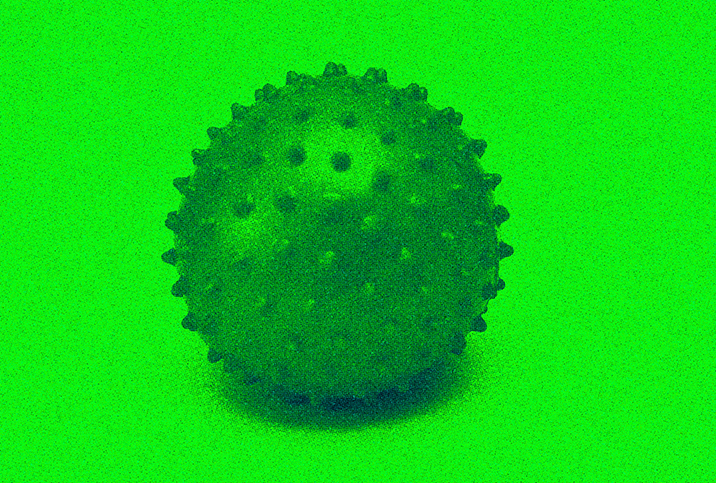Mumps Orchitis Could Be Another Cause of Male Infertility

Mumps is a contagious disease caused by a paramyxovirus and is very rare in the United States, with the Centers for Disease Control and Prevention (CDC) reporting a 99 percent decrease in mumps cases following the implementation of the MMR (measles/mumps/rubella) vaccination program in the 1970s.
However, recent studies show global outbreaks of mumps and a high rate of orchitis, which is the swelling or inflammation of one or both testicles. According to the CDC, mumps cases in the U.S. have seen an increase since 2006. The number of mumps cases had dropped to a few hundred each year, but can now total as many as several thousand during a given year.
In some cases, the mumps virus can cause orchitis. Both mumps and orchitis could threaten male fertility.
With such an effective vaccination program, why do mumps outbreaks occur and how does the disease affect people—particularly men?
Causes of mumps outbreaks
"The combined MMR vaccine that is now part of routine childhood immunizations means that mumps is much less common," said Luciano Nardo, M.D., a board-certified OB-GYN, an expert in reproductive medicine and surgery and the founder of NOW-fertility, an assisted-conception resource in London. "However, it can still be caught by those who are either unvaccinated or have received only one of the two recommended doses."
Additionally, the MMR vaccine is only about 88 percent to 90 percent effective, according to Justin Houman, M.D., a reproductive urologist and men's health specialist at Tower Urology at Cedars-Sinai Medical Center in Los Angeles. So it's not perfect.
"The vaccine protects a person for about 27 years," Houman said. "Then you need a booster dose. When the vaccine immunity wanes, you are more likely to catch mumps when exposed to the virus, leading to outbreaks."
Mumps relies on proximity to spread, so near-contact settings such as college campuses, close-knit communities and large gatherings fuel outbreaks, said Cynthia Murdock, M.D., a partner at Illume Fertility in Norwalk, Connecticut. Fortunately, high vaccination rates help limit the size and duration of outbreaks.
How do you get mumps?
"Anyone can be affected by mumps, although most recent outbreaks have been in young adults," Murdock said.
According to Nardo, children and teens, along with unvaccinated adults, may be most susceptible to the virus.
"Mumps is an airborne viral infection spread through contact with the saliva of an affected individual, [for example] through coughing or sneezing, or by contact with an object or surface which has had the virus transferred onto it by an infected person," said Nardo, adding that sharing equipment and utensils such as cutlery or cups and glasses with an infected person can also spread the virus.
Symptoms of mumps
In about 1 in 6 cases of mumps, a patient displays no symptoms.
For people who do display symptoms, the most common is swelling of the parotid glands, which are located on either side of the face just below the ears and are responsible for producing saliva. When inflamed, they can become painful and cause difficulty swallowing.
The main symptoms of mumps, as described by Houman, include:
- Inflammation of the parotid glands
- Fever
- Headache
- Joint pain
- Nausea
- Vomiting
- Fatigue
- Orchitis in men
- Oophoritis (swollen ovaries) in women
"Due to the inflammatory nature of the disease, in severe cases it can lead to complications such as encephalitis, meningitis, peritonitis, pancreatitis, deafness and male fertility issues," Houman said, adding these types of complications are rare.
How can mumps affect fertility?
Nardo explained mumps is unlikely to have any impact on fertility for males who are infected before the age of puberty, have mumps but don't suffer orchitis, or experience orchitis in one testicle only.
"Around 25 percent of men who contract mumps after puberty will develop orchitis, which is a swelling in one or both testicles," Murdock explained.
When found in both testicles, mumps could cause testicular atrophy (shrinking of the testicles), which can be a cause of reduced sperm production, Nardo said.
According to research, about 30 percent of mumps orchitis cases in men postpuberty cause infertility or subfertility.
Nardo added that approximately 1 in 20 women who contract mumps after puberty develop a temporary swelling of the ovaries (oophoritis), but it should last only for the duration of the infection and is not known to cause any long-term fertility problems.
Treatments for mumps
As mumps is a virus, treatment is largely supportive, Murdock explained: resting, drinking plenty of fluids and taking ibuprofen or Tylenol to manage pain or a fever.
However, men experiencing fertility issues due to mumps might need additional support to achieve a healthy pregnancy with their partner.
"The single best test to determine male fertility is a semen analysis, which will identify any male fertility issues," Murdock said.
Nardo advised that a fertility specialist could recommend artificial reproductive treatments such as intracytoplasmic sperm injection (ICSI), intrauterine insemination (IUI) or in vitro fertilization (IVF) for men who have poor sperm parameters due to orchitis.
"Men who have either no or very low-quality sperm in their ejaculate may be suitable for surgical sperm retrieval, where healthy sperm can be extracted directly from the testicles or epididymis," Nardo added.
Seeing a doctor
The best way to prevent mumps is to get vaccinated. If you have not had both doses of the MMR vaccine and would like to get vaccinated, contact your healthcare provider.
Although mumps isn't usually serious, it's always best to visit your healthcare provider to confirm or rule out a diagnosis of mumps. Your doctor can advise you of severe symptoms to look out for and when to seek further medical help.
Be sure to let them know you suspect mumps in advance of your appointment so your doctor can advise you on any necessary precautions to avoid the spread of infection.
Infertility issues can be challenging to diagnose, and mumps may often be overlooked in conversations about reproductive matters. If you have fertility problems and have had mumps in the past, be sure to mention it to your fertility specialist.


















